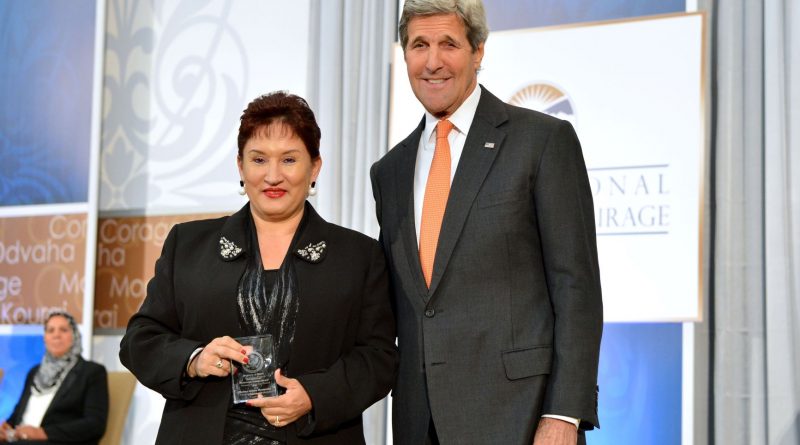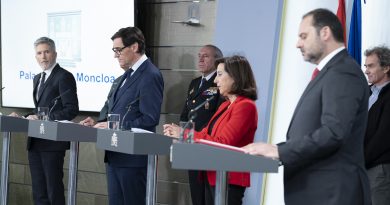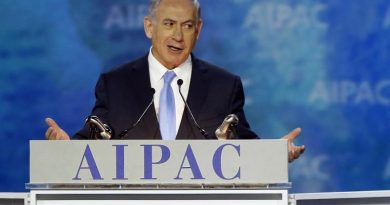Can Guatemala’s Anti-Corruption Crusader Win the Presidency?
Felipe Bueno
Editor-in-Chief
In 2009, the International Commission Against Impunity in Guatemala (CICIG), an international body charged with investigating and prosecuting corruption in the country, described Thelma Aldana’s appointment to the country’s supreme court as “unsuitable.” When she became Guatemala’s Attorney General in 2014, the Economist predicted she would likely take the judicial system in a “new and potentially backward direction.”
Almost immediately however, Ms. Aldana defied all expectations. She quickly became a pragmatic supporter of the CICIG, worked alongside the organization to uncover a scandal that resulted in the resignation of then-president Otto Pérez Molina in 2015, and jailed nearly 250 people before leaving office in 2018.
Now, riding high on her laundry list of achievements and acting as a symbol of the rule of law in a country marred by rampant political corruption, Ms. Aldana is a candidate in the upcoming presidential election that is set to take place in June. She is also currently out of the country and has a warrant out for her arrest on charges of embezzlement and tax fraud.
The arrest warrant is a politically motivated attack, claim Ms. Aldana’s supporters. Some argue it is a move by the worried ruling class that seeks to stifle her anti-corruption efforts. The timing of the warrant itself raises eyebrows as it was issued the same day Ms. Aldana registered as a presidential candidate.
Despite the warrant for her arrest, Ms. Aldana is not worried. “I’m not scared,” she told Reuters in an interview in El Salvador’s capital, “They’re the ones who are scared.” Ms. Aldana is confident that the move is a politically motivated attempt to impede her presidential victory and comes as a result of her promise to make the government efficient and transparent as well as strengthen the CICIG. Additionally, presidential candidates hold immunity under Guatemalan law, meaning that certain challenges to her candidacy will prove ineffective.
However, Ms. Aldana also faces three new procedural challenges by Guatemala’s top electoral court, one of which claims she “did not have a certification from the comptroller’s office indicating that her public accounts were all settled,” reports Fox News. Ms. Aldana initially registered as a presidential candidate with the certification, as is required. The court claims that when it later asked the comptroller about the certification, it was told the document was expired.
While Ms. Aldana could be facing legitimate challenges, it is also possible that individuals within the government are combating her anti-corruption crusade for the sake of self-preservation. One of the most prolific individuals is the country’s siting president, Jimmy Morales. Mr. Morales, who campaigned on an anti-corruption platform with the slogan “neither corrupt nor a thief” and initially supported the CICIG’s mandate, is currently under investigation for campaign-finance violations in 2015 and refused to renew the CICIG. Members of his family are also under investigation for other charges.
The CICIG, which some Guatemalan’s view as an external power meddling in the country’s domestic affairs, and Ms. Aldana launched an investigation in 2017 into the president’s son and brother, who were arrested and charged with money laundering and fraud, respectively. Ms. Aldana and the CICIG also began the current investigation into contributions to Mr. Morales’ presidential campaign. Mr. Morales’ announcement that he would not renew the CICIG’s mandate and his decision to bar the CICIG’s head from entering Guatemala both came swiftly after, and potentially in response to, Ms. Aldana’s investigation.
If history is an indicator, Mr. Morales’ future might not be very bright. The country’s former president, Otto Pérez Molina, also decried his support for the CICIG when it launched an investigation against him and was forced to resign. Meanwhile, Thelma Aldana is currently second in the polls, and could win a run-off in August. As Edgar Ortíz Romero of the Liberty and Development Foundation told the Economist, this could make Ms. Aldana “the first president that [Guatemala’s oligarchs] can’t control.”



